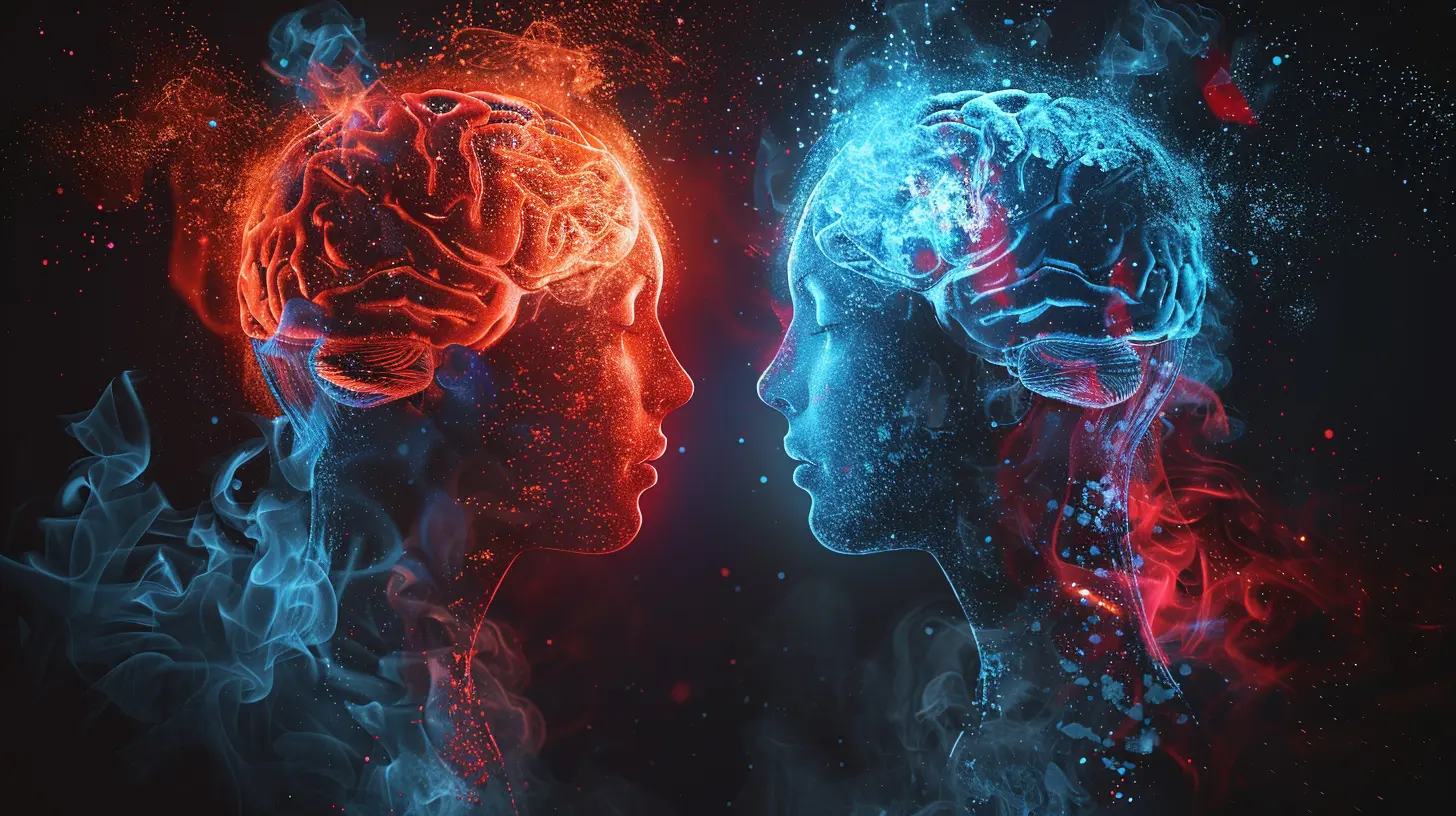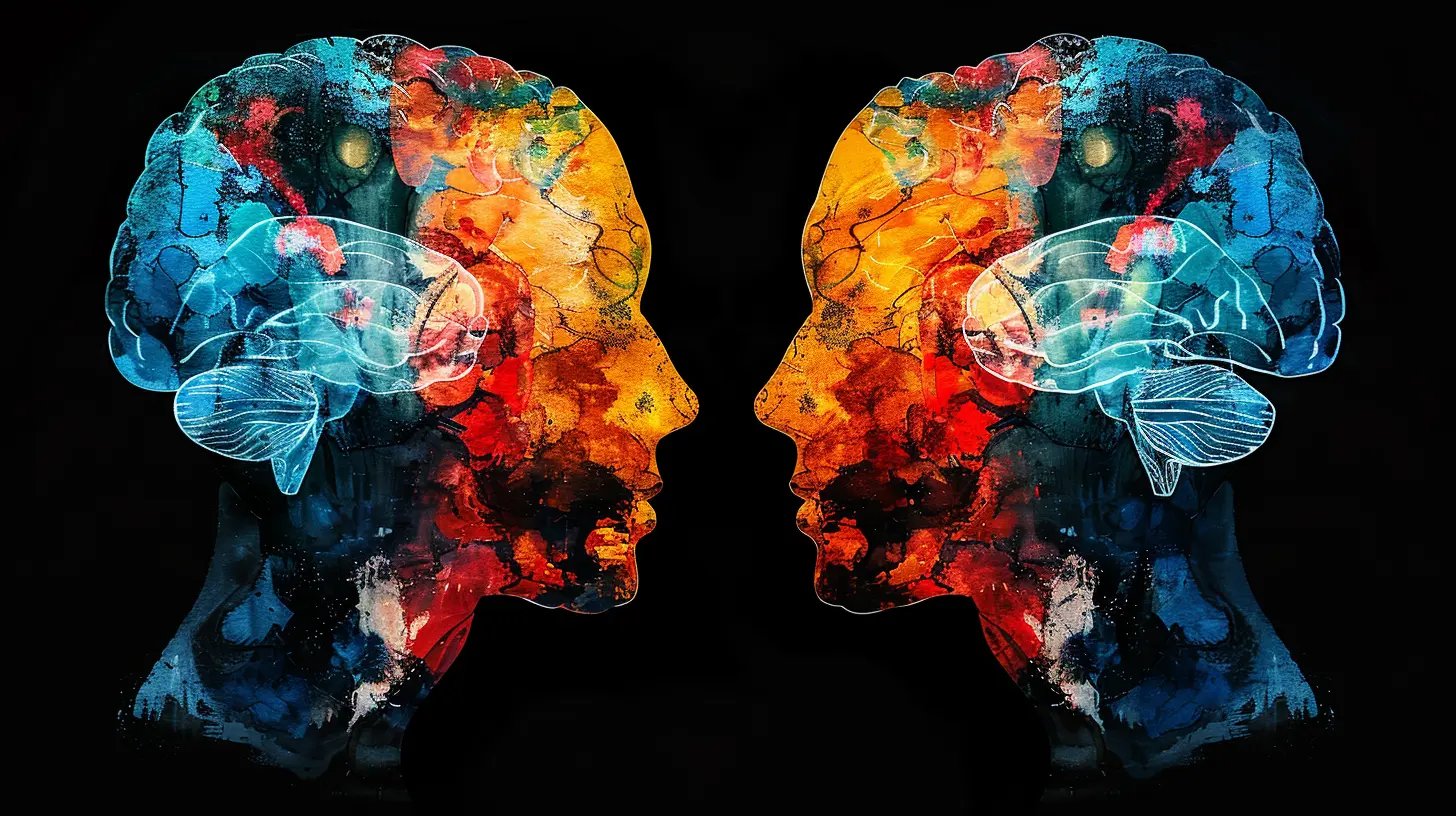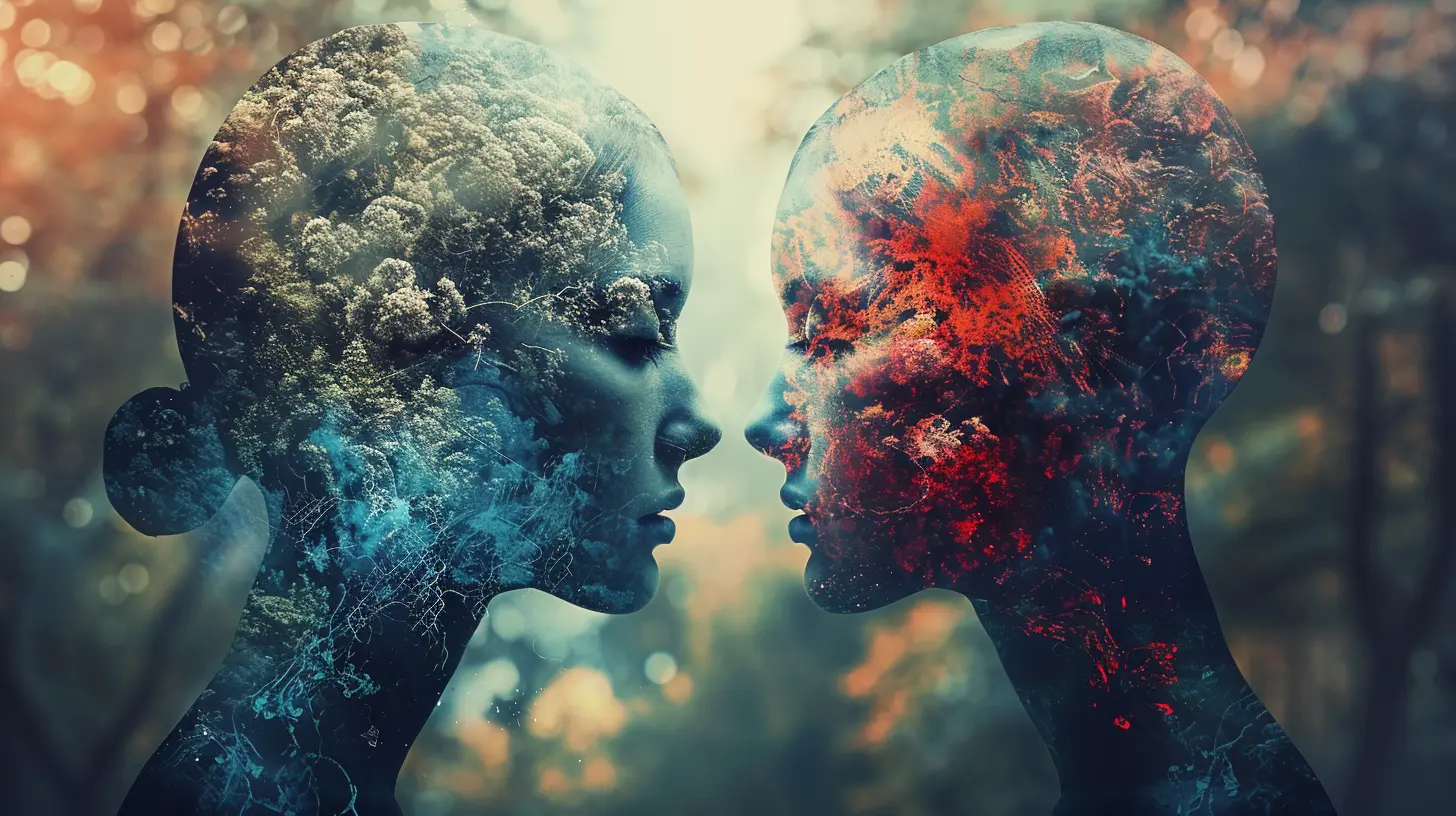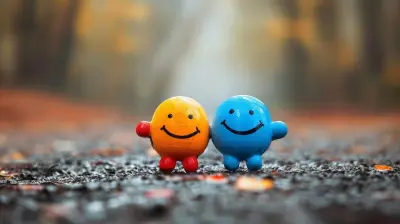The Empathy-Driven Brain: Understanding Emotional Mirroring
10 February 2025
Have you ever found yourself smiling when someone else smiles at you or feeling a pang of sadness when a friend shares their struggles? Isn’t it fascinating how we can experience someone else’s emotions as if they were our own? This is the magic of empathy, and it all boils down to the way our brains are wired.
In this article, we’re going to dive deep into the neuroscience behind empathy—more specifically, the concept of emotional mirroring. We’ll explore how our brains are designed to reflect the emotions of others, why this happens, and how empathy plays a crucial role in human relationships and society.

What Is Emotional Mirroring?
Before we get into the nitty-gritty, let’s break down what emotional mirroring actually means. Essentially, emotional mirroring is the ability of our brains to "mirror" or simulate the emotions and actions of other people. When someone else smiles, parts of your brain light up in a way that makes you likely to smile too. When someone’s angry or sad, you might feel a similar emotional response.This isn’t just about copying behaviors; it’s a deeper, automatic response that happens in the brain. The neurons responsible for this are called mirror neurons, and they play a massive role in how we understand and empathize with others.
But here’s the thing: emotional mirroring isn’t just a quirky brain function. It’s a fundamental part of what makes us human. It’s how we connect, communicate, and build relationships. Let’s dig into how this all works.

Mirror Neurons: The Brain's Empathy Engine
The stars of the show here are mirror neurons. These specialized neurons were first discovered in the 1990s by a group of Italian neurophysiologists. They noticed that when a monkey observed another monkey performing an action, the same neurons fired in the observer’s brain as in the monkey performing the action. In other words, the monkey’s brain was "mirroring" the observed behavior.Fast forward to humans, and the discovery of mirror neurons has opened up a whole new understanding of empathy and emotional mirroring. When you see someone else perform an action or express an emotion, your mirror neurons activate, almost as if you were doing or feeling the same thing. This helps explain why watching someone cry might make you feel emotional or why you cringe when you see someone stub their toe.
Now, this doesn’t mean you’re literally feeling the same intensity of the emotion or pain. But your brain is simulating enough of the experience to make you understand and empathize. It’s like your brain is running a mental "empathy program" in the background, helping you pick up on social cues and emotional signals.
How Mirror Neurons Drive Empathy
So, how exactly do these mirror neurons work in the context of empathy? Think of them as the brain’s built-in empathy engine. They allow us to understand not only what others are doing but also why they’re doing it and how they’re feeling about it.When you see someone else in distress, your mirror neurons fire, giving you a partial experience of their emotional state. This, in turn, triggers an emotional response in you, which helps you understand their feelings and possibly even motivates you to offer comfort or support.
It’s like an emotional mirror reflecting back the feelings of others, helping you navigate the complex web of human relationships. Without this, we’d struggle to connect on an emotional level.

The Role of Emotional Mirroring in Human Relationships
Emotional mirroring is a key player in building strong social bonds. It's the glue that holds relationships together, from friendships to romantic connections and even professional interactions. When we emotionally mirror someone, it helps us build rapport, trust, and understanding. It’s why you might feel closer to someone after a heart-to-heart talk or why you feel more connected to a co-worker who shares your frustrations.Ever wonder why people say “misery loves company” or why laughter is contagious? Emotional mirroring plays a huge role. When you’re sharing the same emotional wavelength as someone else, it creates a sense of camaraderie, whether you're bonding over shared struggles or enjoying a good laugh.
Emotional Mirroring in Romantic Relationships
In romantic relationships, emotional mirroring can be especially powerful. Partners who are in tune with each other’s emotions tend to have stronger, more resilient relationships. When one partner is stressed or upset, the other often senses it—sometimes even before a word is spoken. This intuitive understanding, driven by mirror neurons, helps couples navigate emotional ups and downs together.On the flip side, when emotional mirroring is lacking or disrupted, it can lead to feelings of disconnect. If one partner doesn’t seem to pick up on the other’s emotional cues, it can create friction or feelings of being misunderstood.
Emotional Mirroring and Parenting
Parents and children share a unique emotional mirroring dynamic. Babies, for example, are highly attuned to their caregivers’ emotions. If a parent is stressed, anxious, or happy, the baby often mirrors those emotions. This is why it’s so important for parents to model healthy emotional behaviors.As children grow, they continue to rely on emotional mirroring to learn about social interactions and empathy. When a child sees their parent comforting someone in distress, they’re more likely to develop empathetic behaviors themselves.

The Evolutionary Purpose of Empathy
You might be wondering: why do we even have this ability to mirror emotions? What’s the evolutionary purpose behind it? Well, empathy has deep evolutionary roots. It’s not just a "nice-to-have" feature; it’s a survival mechanism.Think about it: humans are social creatures. We’ve evolved in groups, relying on each other for survival. Empathy helps facilitate cooperation, understanding, and social bonding—all critical for the survival of the species. When you can sense the emotional state of others, you’re better equipped to work together, resolve conflicts, and form alliances.
In fact, some researchers believe that empathy and emotional mirroring were crucial in the development of early human societies. The ability to understand and respond to the emotions of others would have helped early humans work together more effectively, whether in hunting, gathering, or protecting the group from threats.
Can We Improve Our Empathy?
The good news is, empathy isn’t a fixed trait. Just like a muscle, it can be strengthened with practice. Here are some ways to boost your empathy and enhance your emotional mirroring abilities:1. Practice Active Listening
One of the best ways to improve empathy is by practicing active listening. This means fully focusing on the speaker without interrupting, judging, or planning your response. Truly listening helps you pick up on emotional cues and understand the emotions behind the words.2. Put Yourself in Someone Else’s Shoes
When faced with a situation, take a moment to imagine how the other person might be feeling. This simple exercise can help activate your mirror neurons and foster a deeper emotional connection.3. Watch and Learn
Pay attention to body language and facial expressions during conversations. Our brains are wired to pick up on these non-verbal signals, but actively observing them can enhance your ability to mirror emotions.4. Read Fiction
Surprisingly, reading fiction can improve empathy. When you immerse yourself in the inner worlds of fictional characters, you practice understanding perspectives and emotions different from your own.5. Practice Mindfulness
Mindfulness meditation can increase self-awareness and emotional regulation, both of which are key components of empathy. By becoming more in tune with your own emotions, you’re better able to understand the emotions of others.
The Dark Side of Emotional Mirroring
As amazing as emotional mirroring is, it’s not without its challenges. While empathy helps us connect with others, it can also be emotionally draining. This is where the concept of empathic distress comes in. If you’re constantly absorbing the emotions of others, especially negative ones, it can take a toll on your emotional well-being.This is particularly common for people in caregiving roles—nurses, therapists, and even parents—who are constantly exposed to the emotions of others. If you’re not careful, you can experience compassion fatigue or even burnout.
So, while emotional mirroring is a powerful tool for connection, it’s essential to set emotional boundaries and practice self-care. You need to strike a balance between being empathetic and protecting your own emotional health.
Conclusion
The empathy-driven brain is nothing short of remarkable. Thanks to the magic of mirror neurons, we’re able to understand, connect, and empathize with others in ways that are integral to our relationships and society. Emotional mirroring isn’t just a quirky brain function—it’s the foundation of our ability to form meaningful connections.Whether it’s bonding with a loved one, comforting a friend, or simply sharing a smile with a stranger, emotional mirroring shapes the way we interact with the world around us. So, the next time you find yourself catching someone else’s mood, remember: it’s your empathy-driven brain at work, helping you navigate the beautiful complexity of human emotions.
all images in this post were generated using AI tools
Category:
EmpathyAuthor:

Alexandra Butler
Discussion
rate this article
9 comments
Sienna Myers
Empathy is the brain's ultimate social flex! It’s not just about feeling; it’s about vibing on a whole new level. So, if you’re not mirroring emotions, are you even connecting? Let's step it up!
April 7, 2025 at 2:50 PM

Alexandra Butler
Absolutely! Empathy enhances our connections and understanding, allowing us to resonate with others profoundly. It’s essential for meaningful interactions and deeper relationships.
Noah Gill
Embracing the power of empathy can transform our connections and enrich our lives. By understanding emotional mirroring, we unlock the potential for deeper relationships and a more compassionate world. Let’s cultivate this gift!
March 1, 2025 at 3:40 PM

Alexandra Butler
Thank you! I completely agree—empathy truly enhances our connections and fosters a more compassionate society. Let’s continue to nurture this vital gift together!
Dax McIlwain
This article beautifully highlights the power of empathy and emotional mirroring in our interactions. Understanding the brain's role in these processes can foster deeper connections and promote compassion in our lives. Thank you for shedding light on such an essential aspect of human behavior!
February 23, 2025 at 5:11 PM

Alexandra Butler
Thank you for your insightful comment! I’m glad you found the article valuable in emphasizing the importance of empathy and emotional connection.
Vesperos McGuire
Who knew our brains were such great actors? Let’s give a round of applause for emotional mirroring—Hollywood, here we come!
February 23, 2025 at 3:38 AM

Alexandra Butler
Thank you! It’s fascinating how our brains connect and reflect emotions, much like actors on screen. Here’s to celebrating our innate empathy!
Selina Howard
This article brilliantly highlights the concept of emotional mirroring and its role in fostering empathy. By examining the neural mechanisms behind this process, it illustrates how our brains connect with others' emotions. Understanding this can significantly enhance our interpersonal relationships and improve emotional intelligence in various social contexts.
February 21, 2025 at 5:47 PM

Alexandra Butler
Thank you for your insightful comment! I'm glad you found the article meaningful in exploring how emotional mirroring enhances empathy and interpersonal connections.
Elise Benton
This article beautifully highlights how our brains connect through empathy, reminding us of the importance of emotional understanding in relationships.
February 19, 2025 at 5:19 PM

Alexandra Butler
Thank you for your thoughtful comment! I'm glad the article resonated with you and emphasized the vital role of empathy in our connections.
Quorra Phelps
As we delve into the depths of the empathy-driven brain, one must ponder: are our emotional responses truly our own, or merely reflections of others' feelings? This intricate dance of mirroring may unravel hidden truths about human connection, leaving us to question the depths of our shared consciousness.
February 19, 2025 at 5:59 AM

Alexandra Butler
Our emotional responses often intertwine with others' feelings, highlighting the profound interconnectedness of human experience and the complexities of shared consciousness.
Garrett McSweeney
This article brilliantly highlights the significance of emotional mirroring in fostering empathy. By exploring the neuroscience behind this phenomenon, we gain valuable insights into human connection and the ways our brains facilitate understanding and compassion toward others. A must-read!
February 14, 2025 at 5:39 AM

Alexandra Butler
Thank you for your thoughtful comment! I'm glad you found the article insightful and useful in understanding the neuroscience behind empathy. Your support means a lot!
Icarus McTier
Thank you for this insightful article! It’s fascinating how our brains connect through emotional mirroring. Understanding this phenomenon not only deepens our appreciation for empathy but also encourages us to foster meaningful connections in our daily lives. Truly an engaging read!
February 11, 2025 at 3:40 AM

Alexandra Butler
Thank you for your thoughtful comment! I'm glad you found the article engaging and that it resonates with the importance of empathy and connection.
MORE POSTS

Understanding Attachment Theory in Childhood

Understanding the Different Types of Schizophrenia

The Role of Playfulness and Humor in Relationship Satisfaction

The Science Behind Anxiety: What Happens in the Brain?

The Impact of Anxiety on Relationships and How to Address It

How to Stop Overthinking and Find Mental Clarity

Overcoming Self-Sabotage: The Role of Self-Care in Breaking Harmful Cycles